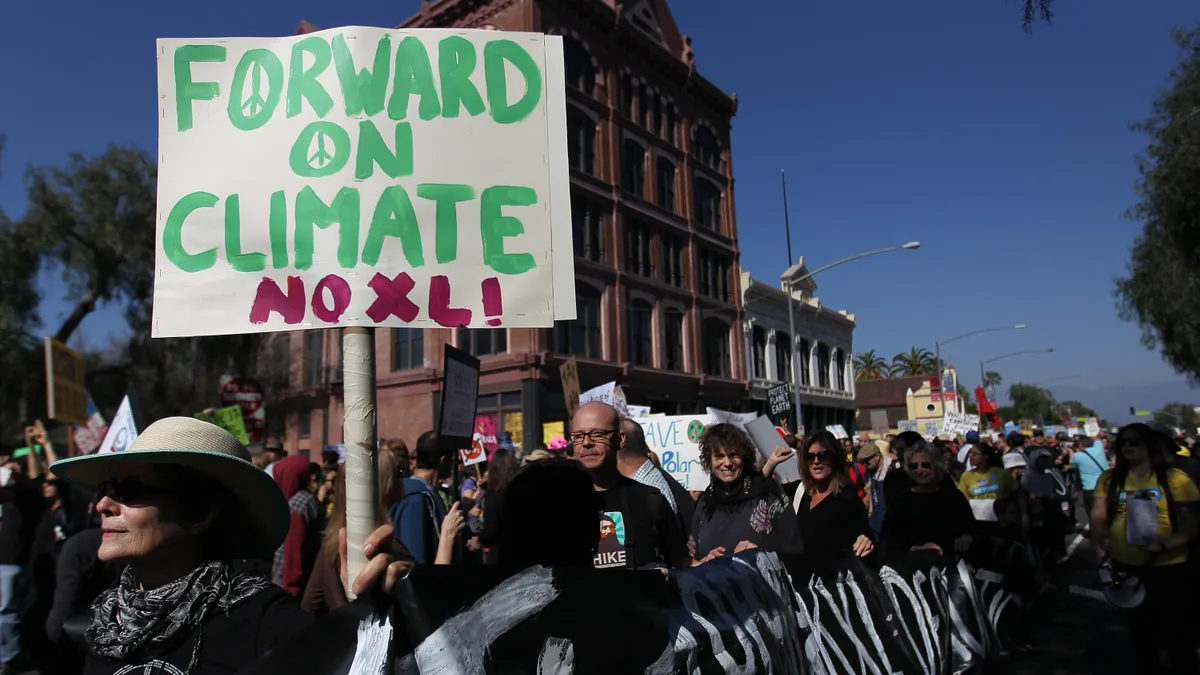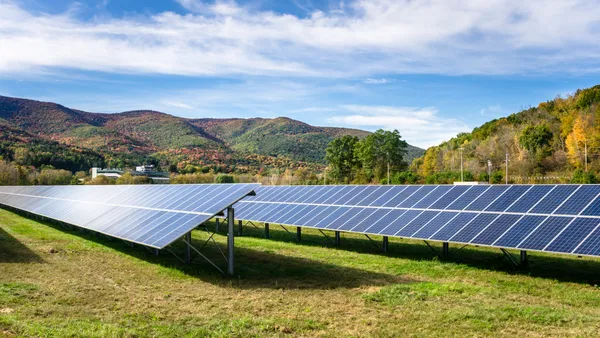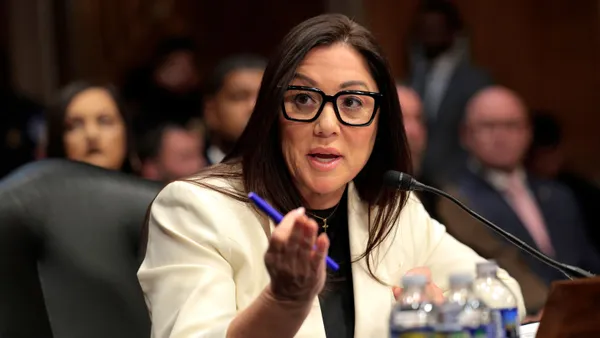Dive Brief:
- Environmental group Sierra Club said it was considering legally challenging the Securities and Exchange Commission’s “arbitrary removal of key provisions” from its final climate rule Wednesday, shortly after the agency approved the rule.
- The organization, which is represented by Earthjustice — a nonprofit focused on litigating environmental issues — said it will also take action to defend the SEC’s authority to implement such a rule. Though the rule passed, the split 3-2 vote hinged on commissioners’ opposing views on the SEC’s authority — or lack thereof — to probe companies for climate-related disclosures.
- Sierra Club took issue with the agency’s watered-down rule, especially its omission of scope 3 emissions reporting. The environmental advocate said the SEC had “capitulated to industry pressure and meritless legal threats” by eliminating these requirements from the final rule.
Dive Insight:
The organization said that though the rule represents a step in the right direction when it comes to investors seeking greater transparency on how companies respond to climate risk, it is a “significantly weaker” version of the proposal put forward in March 2022.
The agency’s original proposal required companies to disclose scope 1, scope 2, and scope 3 emissions “if material or if the registrant has set a GHG emissions target or goal that includes scope 3 emissions.” The final rule that was approved, however, scrapped scope 3 entirely and scaled back its scope 1 and scope 2 reporting requirements, which now only apply to large accelerated filers and accelerated filers.
Sierra Club said the inclusion of scope 3 emissions was important as they accounted for the largest share of most companies’ greenhouse gas emissions, particularly those from high-emitting sectors. The organization also said the pared-down provisions pertaining to companies’ direct emissions — scope 1 and scope 2 — also “weakens” the rule as it allows companies to decide for themselves whether or not such information is “material,” and if it needs to be disclosed.
“As an investor, we expect full transparency about a company’s fundamentals, especially climate-related risks that pose serious negative financial consequences,” Dan Chu, Sierra Club Foundation’s executive director, said in a statement. “Without higher accountability standards, companies can withhold critical information that prevents us from making informed investment decisions rooted in full due diligence.”
Chu said that though the rule’s approval “lays an important foundation,” the SEC is “simply falling short of its mission to protect investors,” unless it implements stronger climate risk disclosure requirements.
The SEC said it received over 24,000 comments since releasing the rule in March 2022, including around 8,100 in the 72 hours leading up to Wednesday’s open hearing. During a media roundtable after the vote, Chair Gary Gensler told reporters the final version of the rule was “responsive to the various comments [made] by investors and issuers.”
Sierra Club said it would release more information on “potential legal actions” in the coming days.












